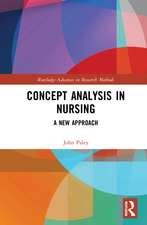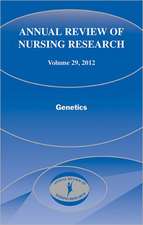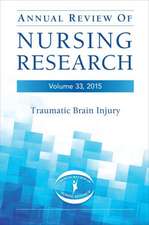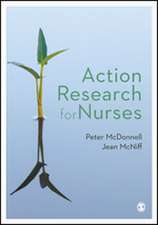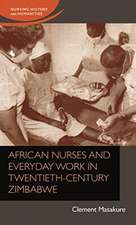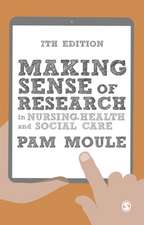Self-Management of Young People with Chronic Conditions: A Strength-Based Approach for Empowerment and Support
Editat de Jane N. T. Sattoe, AnneLoes van Staa, Sander R. Hilberinken Limba Engleză Paperback – 29 ian 2021
This book focuses on young people (12-25 years old) growing up with a chronic somatic condition and/or physical disability, facing different challenges during their transition to adulthood and to adult healthcare services. Becoming an adult often proves extra challenging for them, because the adaptive tasks related to living with a chronic condition can clash with developmental milestones. Finding a good balance and integrating these tasks in daily life is also referred to as self-management.
This book addresses self-management and empowerment of young people with chronic conditions as well as the Positive Youth Development concept. It elaborates on theories and approaches and offers a complete overview of self-management interventions for young people with chronic conditions, emphasizing on the tasks of medical, emotion and role management. It also elaborates on the roles and tasks of professionals, as well as the patient-provider relationship; the shifting roles between young people and their parents and the role of peer support.
This book is unique in its broad view on self-management, i.e. it goes beyond medical management and focuses on young people achieving their maximum potential and a good quality of life. Furthermore, the book employs a positive youth development approach, focusing on empowerment and growth rather than problems or issues.It offers an overview of the state-of-the-art and evidence concerning self-management support for young people with various chronic conditions. As such it is of benefit for all healthcare professionals working in care for young people, but also for researchers interested in this topic.
This book addresses self-management and empowerment of young people with chronic conditions as well as the Positive Youth Development concept. It elaborates on theories and approaches and offers a complete overview of self-management interventions for young people with chronic conditions, emphasizing on the tasks of medical, emotion and role management. It also elaborates on the roles and tasks of professionals, as well as the patient-provider relationship; the shifting roles between young people and their parents and the role of peer support.
This book is unique in its broad view on self-management, i.e. it goes beyond medical management and focuses on young people achieving their maximum potential and a good quality of life. Furthermore, the book employs a positive youth development approach, focusing on empowerment and growth rather than problems or issues.It offers an overview of the state-of-the-art and evidence concerning self-management support for young people with various chronic conditions. As such it is of benefit for all healthcare professionals working in care for young people, but also for researchers interested in this topic.
Preț: 389.83 lei
Preț vechi: 410.35 lei
-5% Nou
Puncte Express: 585
Preț estimativ în valută:
74.60€ • 81.01$ • 62.67£
74.60€ • 81.01$ • 62.67£
Carte tipărită la comandă
Livrare economică 18-24 aprilie
Preluare comenzi: 021 569.72.76
Specificații
ISBN-13: 9783030642921
ISBN-10: 3030642925
Pagini: 176
Ilustrații: X, 173 p. 10 illus., 5 illus. in color.
Dimensiuni: 155 x 235 x 13 mm
Greutate: 0.23 kg
Ediția:1st ed. 2021
Editura: Springer International Publishing
Colecția Springer
Locul publicării:Cham, Switzerland
ISBN-10: 3030642925
Pagini: 176
Ilustrații: X, 173 p. 10 illus., 5 illus. in color.
Dimensiuni: 155 x 235 x 13 mm
Greutate: 0.23 kg
Ediția:1st ed. 2021
Editura: Springer International Publishing
Colecția Springer
Locul publicării:Cham, Switzerland
Cuprins
Chapter 1. Introduction.- Chapter 2. Theories of self-management of young people with chronic condition.- Chapter 3. Positive Youth Development approach to support life skills of young people with chronic conditions.- Chapter 4. Exploring effectiveness and effective components of self-management interventions for young people with chronic physical conditions: A systematic review.- Chapter 5. Self-management Support for young people with chronic conditions.- Chapter 6. Youth Participation: Incorporating the views of young people.- Chapter 7. Transition to Adulthood: Shifting roles between young people with chronic conditions and their parents.- Chapter 8. The role of peer support in self-management and empowerment of young people with chronic conditions.- Chapter 9. The Skills for Growing Up and Ready Steady Go tools to promote life skills in youth with chronic conditions.- Chapter 10. Conclusions
Recenzii
Notă biografică
Jane Sattoe, PhD, is a Senior Researcher and lecturer with a background in health sciences. In 2015, she defended her PhD thesis ‘Growing up with a Chronic Condition: Challenges for Self-management and Self-management Support’ about self-management of adolescents and young adults with chronic conditions. She is involved in research on transition to adulthood with a focus on self-management, social participation, mental wellbeing and transition to adult care. She also works on the development, implementation and evaluation of self-management interventions aiming to empower adolescents and young adults with chronic conditions.
AnneLoes van Staa, PhD MD RN, Applied Research Professor, trained as a general and pediatric nurse before graduating both in medicine and cultural anthropology. In 2003, she was appointed professor "Transitions in Care" in Rotterdam University of Applied Sciences. She defended her PhD thesis ‘On Your Own Feet’ in 2012about preferences and competencies of adolescents with chronic conditions in their transition to adulthood and to adult care. She is involved in quality improvement programs aimed at improving adolescent healthcare services and at empowering adolescents in self-management and autonomy. She also leads research programs into nurse-led self-management support of people with chronic conditions.
Sander Hilberink, PhD, Applied Research Professor, trained as clinical psychologist. He is involved in research on transition to adulthood and lifespan care since 2006, with focus on empowerment, autonomy and long-term consequences of childhood-onset chronic conditions. He is involved in a variety of healthcare innovations, addressing not only a better transfer to adult healthcare, but also to improve citizenship while ageing with lifelong disabilities.
AnneLoes van Staa, PhD MD RN, Applied Research Professor, trained as a general and pediatric nurse before graduating both in medicine and cultural anthropology. In 2003, she was appointed professor "Transitions in Care" in Rotterdam University of Applied Sciences. She defended her PhD thesis ‘On Your Own Feet’ in 2012about preferences and competencies of adolescents with chronic conditions in their transition to adulthood and to adult care. She is involved in quality improvement programs aimed at improving adolescent healthcare services and at empowering adolescents in self-management and autonomy. She also leads research programs into nurse-led self-management support of people with chronic conditions.
Sander Hilberink, PhD, Applied Research Professor, trained as clinical psychologist. He is involved in research on transition to adulthood and lifespan care since 2006, with focus on empowerment, autonomy and long-term consequences of childhood-onset chronic conditions. He is involved in a variety of healthcare innovations, addressing not only a better transfer to adult healthcare, but also to improve citizenship while ageing with lifelong disabilities.
Textul de pe ultima copertă
This book focuses on young people (12-25 years old) growing up with a chronic somatic condition and/or physical disability, facing different challenges during their transition to adulthood and to adult healthcare services. Becoming an adult often proves extra challenging for them, because the adaptive tasks related to living with a chronic condition can clash with developmental milestones. Finding a good balance and integrating these tasks in daily life is also referred to as self-management.
This book addresses self-management and empowerment of young people with chronic conditions as well as the Positive Youth Development concept. It elaborates on theories and approaches and offers a complete overview of self-management interventions for young people with chronic conditions, emphasizing on the tasks of medical, emotion and role management. It also elaborates on the roles and tasks of professionals, as well as the patient-provider relationship; the shifting roles between young people and their parents and the role of peer support.
This book is unique in its broad view on self-management, i.e. it goes beyond medical management and focuses on young people achieving their maximum potential and a good quality of life. Furthermore, the book employs a positive youth development approach, focusing on empowerment and growth rather than problems or issues. It offers an overview of the state-of-the-art and evidence concerning self-management support for young people with various chronic conditions. As such it is of benefit for all healthcare professionals working in care for young people, but also for researchers interested in this topic.
This book addresses self-management and empowerment of young people with chronic conditions as well as the Positive Youth Development concept. It elaborates on theories and approaches and offers a complete overview of self-management interventions for young people with chronic conditions, emphasizing on the tasks of medical, emotion and role management. It also elaborates on the roles and tasks of professionals, as well as the patient-provider relationship; the shifting roles between young people and their parents and the role of peer support.
This book is unique in its broad view on self-management, i.e. it goes beyond medical management and focuses on young people achieving their maximum potential and a good quality of life. Furthermore, the book employs a positive youth development approach, focusing on empowerment and growth rather than problems or issues. It offers an overview of the state-of-the-art and evidence concerning self-management support for young people with various chronic conditions. As such it is of benefit for all healthcare professionals working in care for young people, but also for researchers interested in this topic.
Caracteristici
Offers a comprehensive definition of self-management, and focuses on young people achieving a good quality of life and their maximum potential Focuses on the challenges that young people with different chronic conditions have in common rather than on specific medical tasks Provides a positive youth development approach by focusing on empowerment, social relationships and growth

